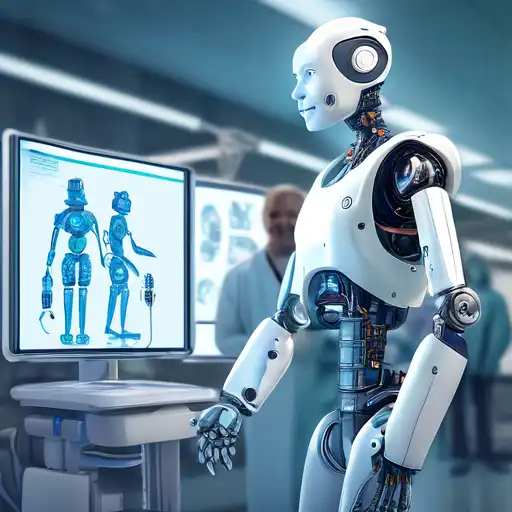The Dawn of Robotics in Healthcare
The integration of robotics into healthcare is revolutionizing the way medical services are delivered. From surgical procedures to patient care, robotics technology is enhancing efficiency, precision, and outcomes in the medical field. This transformative approach is not just a futuristic concept but a present-day reality that's reshaping healthcare delivery.
Applications of Robotics in Healthcare
Robotics technology finds its application in various facets of healthcare, including but not limited to:
- Surgical Robots: These provide surgeons with unparalleled precision, flexibility, and control, enabling minimally invasive procedures with reduced recovery times.
- Rehabilitation Robots: Designed to assist patients in regaining mobility and strength, these robots are pivotal in physical therapy and rehabilitation.
- Pharmacy Automation: Robots are streamlining the dispensing of medications, reducing errors, and improving efficiency in pharmacies.
- Patient Care Robots: These robots assist in patient monitoring, lifting, and even companionship, alleviating the workload on healthcare staff.
Benefits of Robotics in Healthcare
The adoption of robotics in healthcare brings forth numerous benefits:
- Enhanced Precision: Robotics technology minimizes human error, ensuring high precision in surgeries and treatments.
- Improved Patient Outcomes: With reduced recovery times and minimized complications, patient outcomes are significantly improved.
- Increased Efficiency: Automation of routine tasks allows healthcare professionals to focus on more critical aspects of patient care.
- Cost Reduction: Over time, robotics can lead to substantial cost savings by reducing surgery times, hospital stays, and the need for follow-up treatments.
Challenges and Future Directions
Despite its benefits, the integration of robotics in healthcare faces challenges such as high initial costs, the need for specialized training, and ethical considerations. However, ongoing advancements and research are addressing these hurdles, paving the way for broader adoption. The future of robotics in healthcare is bright, with potential developments including AI integration for smarter robots and expanded applications in telemedicine and remote surgeries.
For more insights into how technology is transforming healthcare, explore our articles on Innovation in Medical Technology and The Future of Telemedicine.
Conclusion
Robotics in healthcare is undeniably a game-changer, offering solutions that enhance patient care, improve outcomes, and streamline operations. As technology continues to evolve, the potential for robotics in healthcare is limitless, promising a future where medical services are more accessible, efficient, and effective than ever before.
